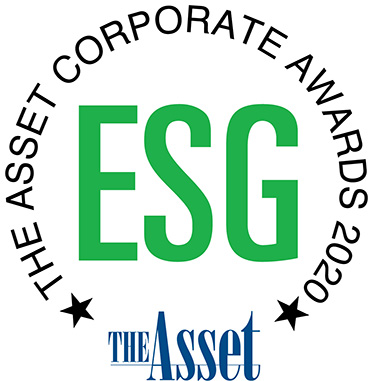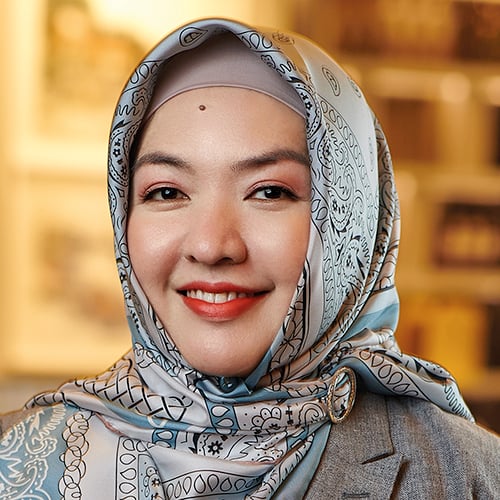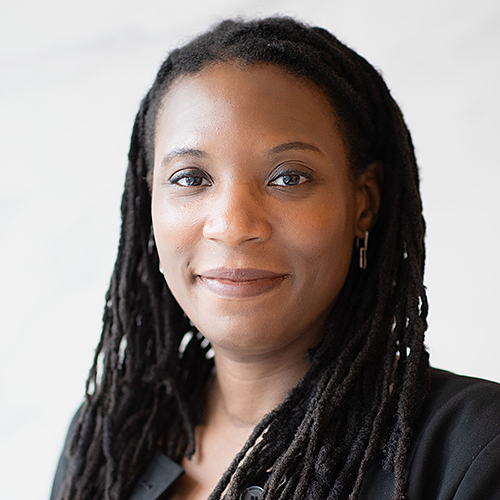
The year about to end has been the ultimate test of leadership. On the political front, many leaders have dithered and stumbled, incurring the dismay and anger of their constituents. But there are also those who have risen to the challenge. In Asia, many CEOs have proved their mettle by making decisions that are creative and necessary, all the while considering the overall welfare of their companies and stakeholders.
Over the past eight weeks, The Asset editors have interviewed around 30 business leaders, investors, and boards of directors over their pandemic strategies.
On the one hand, corporate leaders are expected to have both a coherent long-term view and a set of effective short-term fixes ready. On the other hand, for all their expertise, they are grappling with many new questions for which they do not have answers.
In this context, The Asset announces the winners of the Best CEO Award for 2020. From the interviews with CEOs who stood the test, the following valuable leadership traits emerged:
Be creative to find the middle ground
Amid the pandemic, creativity matters. In many cases, leaders found themselves in the midst of stakeholders holding opposing positions and needed to come up with a creative resolution to satisfy different parties. Ada Wong, CEO of Champion REIT, was one of them.
Faced with a sudden business downturn due to Covid-19, tenants asked Champion REIT for rental concessions. On the one hand, Wong understood what these desperate tenants were facing. On the other hand, she had to make the topline to pay dividend to unit holders.
Squeezed in the middle, Wong came up with an innovative solution, which was to take the tenant company’s shares as rent, instead of cash. “Given my banking and finance background, I was just joking with a tenant, saying that maybe I should take their listed shares as rent,” recalls Wong. “It turns out that this solution eased the short-term tight liquidity of the tenant and offers us upside potential when the market recovers.”
What began in jest became a reality on April 29 when Champion REIT announced it would temporarily receive listed shares of anchor tenant Union Medical Healthcare (UMH; stock code: 2138) of Langham Place Office Tower in lieu of cash for their rental payment to ease the short-term tight liquidity of the tenant.
Champion REIT is understood to be the only firm among its peers to pioneer this rental settlement, which, instead of creating a conflict, aligns the tenant’s and the property owner’s interests. The idea also provides insights into how financial arrangements can be reimagined to align the interests of disparate stakeholders.
Be bold to make the difficult decisions
When the virus started to spread in Wuhan, Ke Ruiwen, CEO of China Telecom, faced a dilemma. As a responsible employer, he needed to protect employees’ health and safety. Yet, as a responsible telecommunications company in China, it had to support a smooth communication network for the fight against Covid-19.
The situation became more acute when hospital capacity in Wuhan could no longer cope with the outbreak. In response, the central government ordered the construction of two temporary hospitals, Huoshenshan and Leishenshan, and China Telecom was tasked with deploying technicians to set up 5G tower stations and a network to secure reliable connection signals for the two new hospitals.
At the same time, to conform to the public’s right to keep abreast of the construction process, China Telecom set up cameras to broadcast the progress of the building in real time.
Despite taking all possible precautions for his employees (i.e., providing sufficient medical supplies and personal protective equipment), balancing employee’s health and ensuring communication network resilience was one of the most difficult set of decisions Ke had to make during the peak of the pandemic.
In the financial world as well, CEOs also faced tough situations. On March 19, the TAIEX dropped to 8,681.34, prompting many Taiwanese banks to activate stop-loss mechanisms. On the securities trading side, banks had to cut trading positions as suggested by the stop-loss mechanism. However, on the insurance side, the mechanism prompted management to discuss the bank’s next action.
Daniel I. Wu, president of CTBC Holding, had to face tough decisions as well. The credit department wanted Wu to cut positions, yet Wu knew that even if the firm cut positions, the converted cash had to be invested in other securities. And given the market situation, such conversion could be trivial. “I made the decision not to cut any positions on the insurance side, and I reported it to the insurance and financial holding company board myself right away,” Wu says. As the only one responsible for the decision, Wu half-jokingly tells The Asset, “I know that if I was wrong, I would not be sitting with you and talking to you now.”
Be humble to look for improvements
It is not only by being decisive at critical moments that successful leaders learn and grow through experience. “We are quite familiar with digital transformation, but Covid-19 let us know that we needed to be faster in adopting digital technology,” admits Phongsthorn Thavisin, CEO of PTT Exploration and Production (PTTEP).
According to Phongsthorn’s account, the company had already been adopting digital transformation and upgrading technologically even before Covid-19 struck. Indeed, during the pandemic, PTTEP and its subsidiary AI Robotics Ventures teamed up with A.I. Technology, an automation machine-maker in the country, utilizing engineering expertise to improve the capability of the prototype negative pressure patient transfer, which is needed to isolate Covid-19 patients. In total, 100 negative pressure patient transfers and 90 mobile negative pressure boxes were provided to Navamindradhiraj University’s Faculty of Medicine Vajira Hospital, which would be distributed to hospitals across the country.
Yet, the pandemic also revealed to Phongsthorn that there was a large knowledge gap between the technological professionals and the supporting staff of PTTEP. In many cases, supporting staff did not know how to apply digital technology to solve the pain points. As a result, Phongsthorn and his team decided to collaborate with local universities to better equip his colleagues with digital and remote-working capabilities.
Be Persistent to pursue ESG goals
AS a result of the Covid-19 pandemic, a lot of businesses have reinforced their commitment to ESG. In conversation with The Asset, CTBC Holding’s Wu recalls that when he first started to push for ESG, there was a difference of opinion among management. With a reputation in corporate social responsibility, CTBC Holding came under scrutiny as to why it needed to devote further resources to ESG.
The response, according to Wu, was that the Covid-19 outbreak was a clear sign that the business community was not doing enough. He and his management team turned this crisis into an opportunity to commit further resources to ESG. CTBC Holding launched its ESG office in March and signed up to the Task Force on Climate-related Financial Disclosures in April of this year.
“I still remember the documentary An Inconvenient Truth back in 2006,” says Wu. “It mentioned that in the coming 10 years, we would witness the destruction of the planet, the storms, epidemic... Looking back, the scientists were right.”
Be Decisive to right the wrong
There are, by some accounts, more than 17 categories of bank fraud with new scams constantly being perpetrated. It is the job of a bank CEO to ensure that risk management systems are effective against known and possible avenues for fraud. But just as retail outlets are susceptible to devious forms of shoplifting and cybersecurity providers have themselves been hacked, E.SUN has been the target of embezzlement. This year, the Taiwanese bank discovered that two of its financial advisers had misappropriated funds from clients’ accounts.
It is the mark of an effective CEO to respond quickly and implement effective security measures. Joseph Huang, chairman of E.SUN Commercial Bank and director of E.SUN Financial Holding Company, appears to have done just that. The bank promptly reported the incidents to the police and the regulator, which duly imposed a record fine. “We are very regretful and discouraged by these financial adviser cases,” Huang states. “Conduct risk arising from the acts of individual employees is really a challenge for modern banks. But never waste a good crisis. We will use this opportunity to enhance E.SUN’s risk management system.”
One counter-measure was to rotate all financial advisers who had served in their branch for more than five years. E.SUN Commercial Bank, according to Huang, is the first Taiwanese bank to establish rotation programmes for its financial advisers. The bank also engaged an auditor and a consultant to further strengthen its risk management systems.
Good governance relies not only on robust checks and balances, but also on leadership of conscience and good faith. Although the bank suffered reputation risk, Huang demonstrated his ability to remedy the mistakes quickly and implement corrective measures decisively.
To view the list of The Asset Best CEO Award winners, please click here.
To view the list of The Asset Best Investor Relation Team Award winners, please click here.









